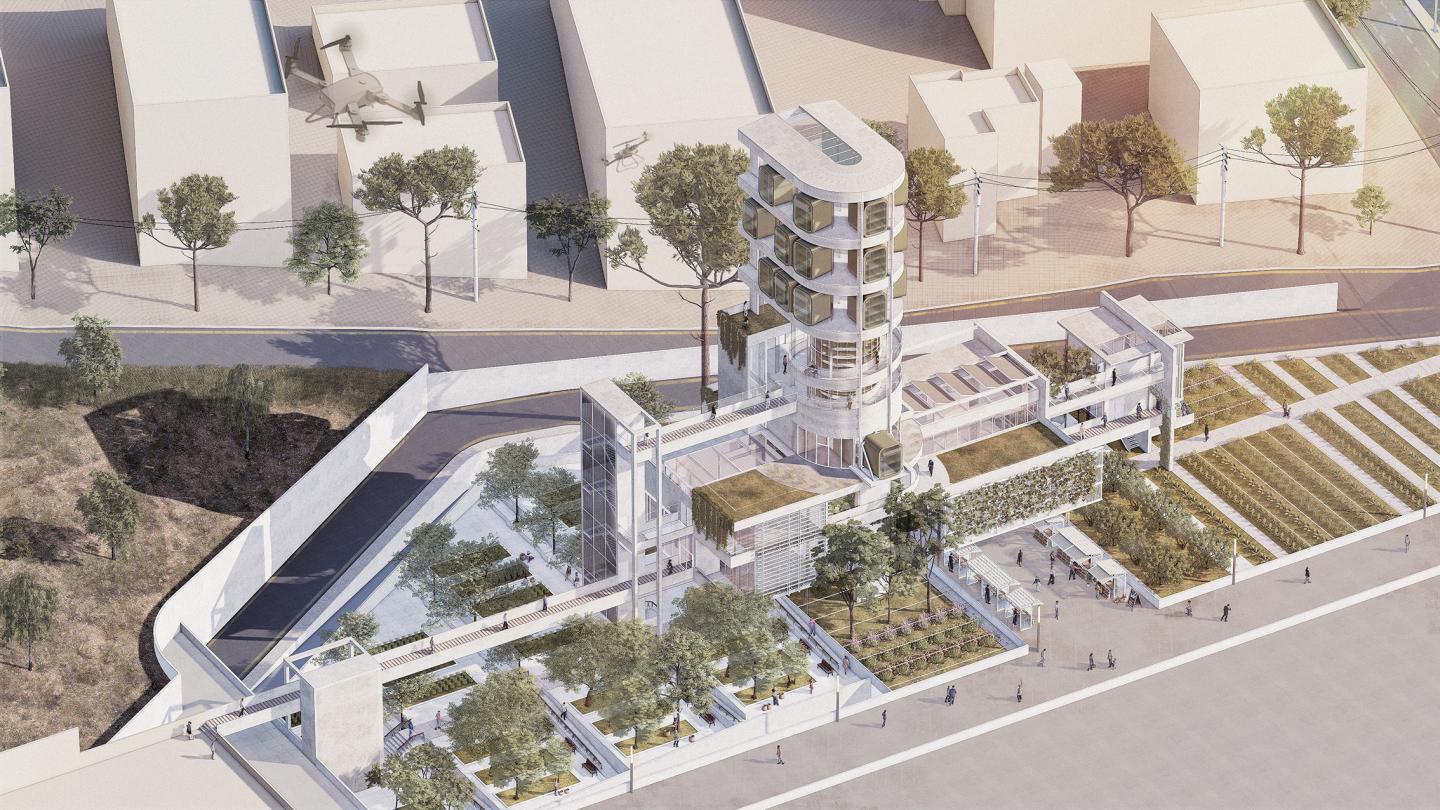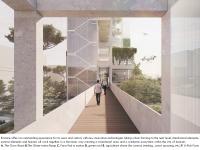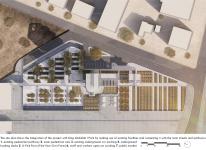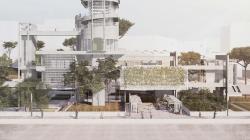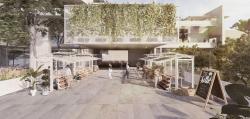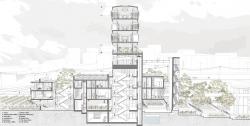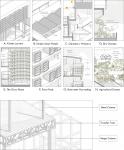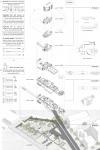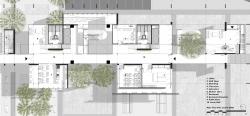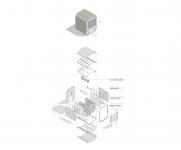Humans have been acting as a planetary force disturbing the ecosystems, which resulted in a remarkable increase in the number of occurrences of pandemics and epidemics in the last decades, with the latest being COVID-19.
In addition to the direct impact of the virus on people's health, COVID-19 induced lockdown have led to severe and widespread increases in global food insecurity, affecting vulnerable households in almost every country. This issue particularly revealed a need for an urban food production system which is the core motivation for this project.
Ecotone is a prototype for food production in urban areas, which enables the development of a local, sustainable, and resilient food system that integrates the latest technologies to make urban farming a more productive and engaging process.
The design process was based on the exploration of the relationship between human and non-human entities from a post-humanistic perspective, which does not completely exclude Anthropocene, but rather surpasses it. It entails a critique of human exceptionalism and human as a universal measure of all things. The posthuman subject is not limited to biology, it also assumes technology into its totality in an equal manner reconsidering the role of machines from “perfect slaves” to “mechanical partners”.
The project offers different methods of urban farming:
1. U-Pick Farm. Uses the traditional way of planting in soil.
2. The Grow Room. Uses hydroponics which involves growing plants without soil by using water based mineral nutrient solutions. And it saves between 70-90% of water.
3. The Farm Pods. A mobile prefabricated kinetic pod that moves continuously to maintain optimum growing conditions for the crops inside the pod. Uses aeroponics which is a method of growing plants in an air or mist environment. It can reduce water usage by 98%.
All these methods are designed in an engaging way that makes farming an entertaining activity which will attract visitors from the local community.
The functions of the project are not limited to food production, the project also includes a Department for Education and Research that aims to spread awareness of food security and food safety. Research ensures constant development and improvement of the productivity and increase of food quality. There is also a commercial zone that includes a restaurant which offers a unique farm-to-table experience.
The concept of sustainability is reflected in the architectural, design, materials, elements, and technologies. Using less water, energy and natural resources will encourage biodiversity. This can help improve the quality of and air in the local area while conserving and restoring natural resources.
Ecotone also aims to redevelop and revive the brownfields of Amman to create breathing spaces within the existing fabric of the city. Instead of being unused and underutilized spaces, these brownfields will become the lungs of the city. Reusing food waste as a compost for soil is a form of recycling, and a natural way of returning needed nutrients to the soil.
Research has proven that by protecting and preserving the wealth and variety of species, habitats, ecosystems, and genetic diversity on the planet we are minimizing the likelihood of future pandemics. Conservation of the biodiversity is important for our health, wealth, and food.
2022
Project Title: Ecotone
Project Site Location: Amman, Jordan
Project coordinates on google maps: 31.96739551064701, 35.88791104371676
Project Function: Urban Farm
Designer: Bushra Ateyyeh
Supervisor: Saleem Dahabreh
Favorited 1 times
